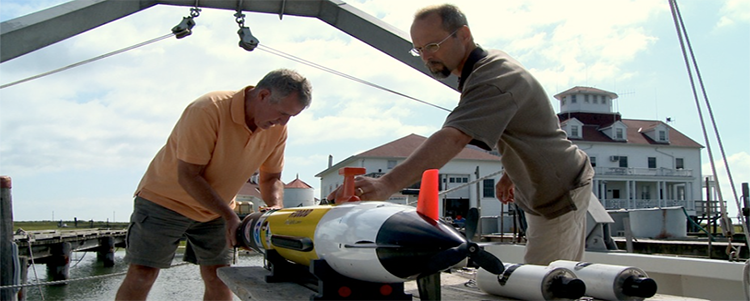The Station remains central to the function of the Jacques Cousteau National Estuarine Research Reserve (JCNERR), part of a unified federal reserve system, for which Rutgers University is the state custodian. Long-term monitoring of estuarine water quality, weather, salt marsh vegetation, and coastal geomorphology are core reserve functions with nationally synchronized and managed protocols coupled to institutionalized outreach and stewardship tasks. Monitoring of fishes and seals are leveraged by this program. The 116,000 acre JCNERR surrounds the Station, stretching to the freshwater reaches of the Mullica River and out to sea. The Station hosts the Reserve’s Research Coordinator office and System Wide Monitoring Program laboratory and provides ready access to sensors deployed in the estuary.
Because of its proximity to the ocean inlet, the Field Station is also an important hub for the development and testing of autonomous underwater vehicle (AUV) sensing systems technology and practices. The station and its vessels have hosted trials for AUV sonar reconnaissance, AUV-supported acoustic fish telemetry, infrasound detection, automated plankton sampling, photo imaging, proprietary sensing trials, and payload control. These developments have resulted in applications throughout the USA. Current efforts seek to advance AUV platform development for magnetometer application in anomaly and gradient detection and for real-time sensing, classification, and notification of whale calls in support of reducing environmental impacts of wind energy development. In a similar way, the station has also provided access for deployment and recovery of wide ranging glider AUVs.

